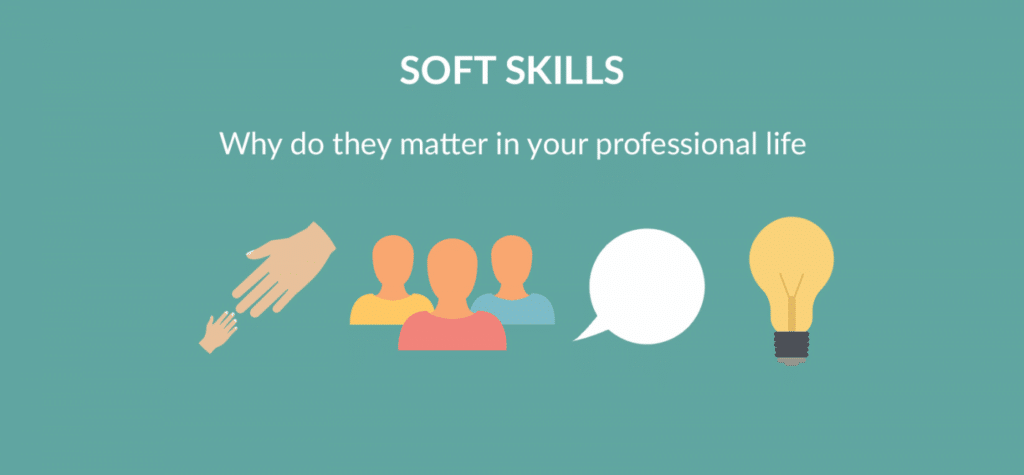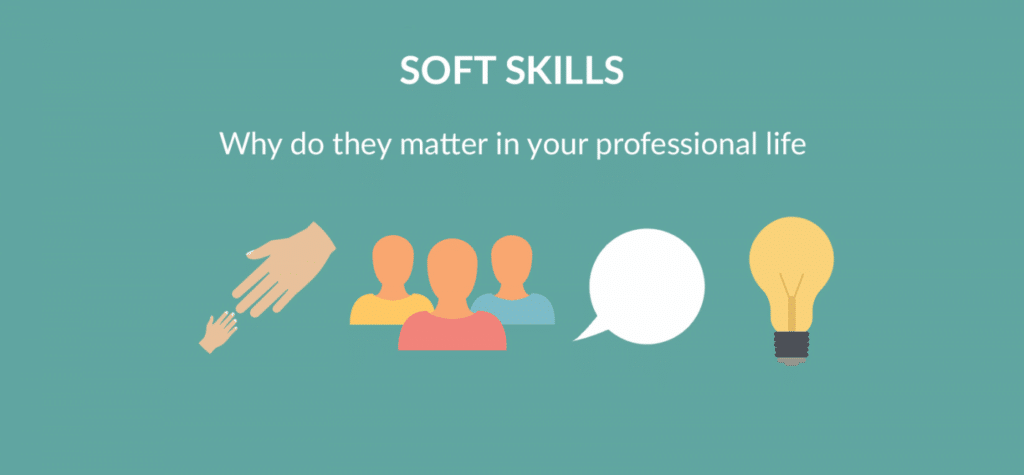
According to Forbes, 94% of recruiters believe that soft skills outweigh hard skills when pursuing a career promotion.
As more jobs become automated, soft skills continue to grow in importance.
So, what exactly are soft skills?
Soft skills are synonymous with emotional intelligence or in other words, character traits that affect your ability to work with others. Hard skills are the technical aspect of how you do your job.
For reference, a hard skill would be a software engineer’s ability to code in python, while an example of a soft skill would be for that same software engineer to work in a team to create a website.
The Importance of Soft Skills
In today’s world, with rapidly improving AI and automation, employers are putting more emphasis on soft skills rather than hard skills.
Why is that?
Increasing powerful AI and other technologies have made many hard skills not as sought after as they once were.
A software developer who has ten years of development experience may not be as valuable to an employer as a software developer with only seven years of experience who also possesses great team work abilities.
You can be a very gifted IT professional, but if you don’t have the most important soft skills IT professionals need to have, you may find yourself stuck in your career position and unable to move up.
As an IT professional looking to grow your career, you have to differentiate yourself from your co-workers and other people within your field.
Most developers lack soft skills such as communication and Team-Work. Therefore, improving your soft skills is perhaps the best way to differentiate yourself from your co-workers, making you the sought after IT professional.
How IT Professionals Can Improve Their Soft Skills
Find a Mentor
Mentors are perhaps the best way to improve your soft skills and are a great way to learn the skills first hand that you want.
Find a mentor who is in a leadership role and/or is excelling in what you want to pursue in the future.
Online Courses
Online courses are a great way to improve many of your soft skills. Great online learning platforms such as Udemy and Coursera offer great classes to help.
You can even get certified for many various soft skills. What’s a better way to show off your soft skills on your resume than being certified in it?
Here are some great online courses to help improve your soft skills:
- Coursera Soft skill Courses
- Communication Skills For Engineers
- The Arts of and Science of Relationships
- Teamwork Skills: Communicating Effectively In Groups
- Communication Strategies for a Virtual Age
Read
Reading is a great way to take the experiences of others and learn from them. You can learn from some of the most accomplished people all through a book.
Best books to improve your soft skills:
- How to Win Friends and Influence People by Dale Carnegie
- Soft Skills: The Software Developer’s Life Manual
- Bridging THe Soft Skill Gap by Bruce Tulgan
- The Hard Truth About Soft Skills: Workplace Lessons Smart People Wish They’d Learned Sooner by Peggy Klaus
Reflection and Refinement
A great way to start noticing if you have good soft skills or not is at the end of your week, set aside five or ten minutes to reflect on the past few days.
Ask questions such as:
- Are you on the same page with your co-workers on your project?
- What sticky situation did you come across this week and how did you overcome it?
- What conflicts occurred this week and how did you resolve them?
- What did you do this week to build good relationships with others?
- How did you communicate difficult information to someone?
- How are you keeping track of your projects?
- Did you get everything you wanted to get done this week? If not, what were the biggest inhibitors of accomplishing your weekly tasks?
These self-reflective questions help you gauge how you are doing on your soft-skills. After answering some of these questions, you can create a plan on how you are going to improve them.

